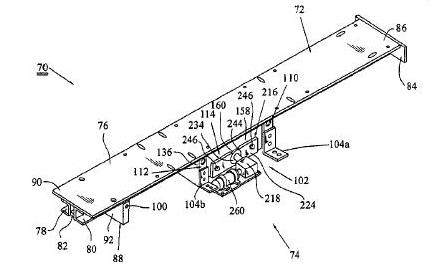Indianapolis, IN – Boston Scientific Corporation (“Boston Scientific”) of Natik, Massachusetts, was granted three of its four requests to exclude Defendant’s expert testimony in its declaratory judgment suit against Mirowski Family Ventures, LLC (“Mirowski”) of Bethesda, Maryland.
The litigation surrounding the Boston Scientific/Guidant Corp. (“Guidant”) / Mirowski / St. Jude Medical, Inc. (“St. Jude”) matter began in the Southern District of Indiana (and also in Delaware) as a patent infringement suit regarding an implantable cardioverter defibrillator. It was appealed to the Federal Circuit, reversed and returned to the Southern District of Indiana. It was later appealed again to the Federal Circuit. The second ruling of the Federal Circuit was then appealed to the U.S. Supreme Court, which declined to hear the case. The matter was finally settled and the case dismissed but a subsequent dispute regarding the settlement resulted in the commencement of the current litigation.
to the Southern District of Indiana. It was later appealed again to the Federal Circuit. The second ruling of the Federal Circuit was then appealed to the U.S. Supreme Court, which declined to hear the case. The matter was finally settled and the case dismissed but a subsequent dispute regarding the settlement resulted in the commencement of the current litigation.
In 1996, patent attorneys for Guidant (Boston Scientific’s predecessor) sued St. Jude for infringement of, inter alia, Mirowski’s Patent No. 4,407,288 (“the ‘288 patent”) which had been issued by the U.S. Patent Office, and for which Guidant had an exclusive license. Mirowski was added as a Plaintiff in 2001. That same year, a jury found that St. Jude had infringed the ‘288 patent that had been licensed to Guidant and jointly awarded Guidant and Mirowski $140 million in damages.
The court disagreed with the jury’s conclusions and, in 2002, entered a judgment as a matter of law for St. Jude on most issues, including finding both the ‘288 patent and another of Mirowski’s patents invalid. It granted a new trial on many of the issues on which St. Jude had not prevailed. The court also sanctioned Guidant $300,000 for misconduct relating to a Guidant expert witness.
Mirowski and Guidant appealed. Guidant also ceased royalty payments to Mirowski, as the agreement for royalties was limited to only those devices that were covered by a valid, unexpired patent. The Federal Circuit reversed the district court’s determination of invalidity of the ‘288 patent and remanded the case for further proceedings.
In 2010, Boston Scientific (which had acquired Guidant in 2006), Mirowski and St. Jude entered into a stipulation of dismissal and the case was closed. Boston Scientific paid Mirowski approximately $5.3 million and later slightly less than $1.4 million, the latter amount covering an error in the calculation of the earlier payment.
Mirowski objected to the amount of the royalty payments, contending that more was due. Mirowski also argued that Boston Scientific breached the parties’ agreement when it settled portions of its claims with St. Jude without Mirowski’s knowledge and approval.
On May 31, 2011, Boston Scientific filed suit against Mirowski, seeking declarations of non-infringement, satisfaction of royalty obligation, and no breach of contract regarding both the Indiana and the Delaware litigation. See a previous post discussing the commencement of this suit here. [NB: The Plaintiff listed in that complaint, Cardiac Pacemakers, Inc., is now a wholly-owned subsidiary of Boston Scientific.]
In the current matter, in a motion in limine pursuant to the suit for declaratory judgment, Boston Scientific asked the court to exclude certain testimony regarding damages by Mirowski’s expert witness, Dr. Mohan Rao. After discussing a substantial list of his credentials, the court found Dr. Rao to be qualified to testify as an expert. The court also found the data on which Dr. Rao relied to be sufficient. The court then addressed Boston Scientific’s objections to Dr. Rao’s opinions in the areas of relevancy and methodology under the standard set forth in Daubert.
Dr. Rao summarized his opinions in four points: 1) his opinion regarding baseline royalties, 2) his opinion about the expected damages in the Delaware litigation, 3) his settlement valuations of the Indiana and Delaware litigations and 4) his unjust enrichment analysis. The court excluded the first, third and fourth opinions.
The court excluded the first opinion regarding baseline royalties as irrelevant. Through Dr. Rao, Mirowski argued that a baseline level of damages should be established that reflected the royalty that it would have received had Boston Scientific sought Mirowski’s consent before proceeding with the lawsuit, stating that such consent would not have been forthcoming. The court excluded this opinion, as it had already held that, pursuant to an agreement between the parties, Boston Scientific had no duty to obtain Mirowski’s consent to litigate. To the contrary, under the licensing agreement, Boston Scientific was obligated to sue St. Jude and similar infringers unless Boston Scientific and Mirowski agreed that a lawsuit should not be brought. Because Boston Scientific had an unfettered right to sue under the licensing agreement, Mirowski could not prove a factual predicate – that Boston Scientific had acted improperly by failing to obtain consent to sue – of its baseline-royalties argument. As such, the argument was impossible to win and the testimony was excluded as irrelevant.
The court excluded Dr. Rao’s third opinion, regarding the settlement valuations of the Indiana and Delaware litigations, as inconsistent with his own stated methodology of calculating an estimated settlement value. Dr. Rao had explained his methodology as consisting of two parts: the range of damages that the Plaintiff would accept at settlement and the range that the Defendant would offer. The estimated settlement value, then, would be within the overlap of those two ranges. However, in calculating his estimated settlement value, the court found that Dr. Rao appeared to have considered only the Plaintiff’s point of view. Because Dr. Rao failed to apply the methodology he described, this opinion was held to be inadmissible.
The court excluded the fourth opinion, regarding unjust enrichment, as demonstrating a fundamental misunderstanding of the doctrine. Specifically, Dr. Rao seemed to believe that a finding of unjust enrichment would result in a payment that would be split approximately evenly between Boston Scientific and Mirowski. He stated, “Mirowski would only get a portion of the proceeds on whatever it is that Boston Scientific was enriched, unjust or otherwise…Boston Scientific’s unjust enrichment would be roughly twice what the expected proceeds would be to Mirowski.” Holding that this testimony evinced a lack of understanding of the doctrine of unjust enrichment, the contractual relationship of the parties, and the parties’ positions at the time the settlement occurred, the court held the fourth opinion to be inadmissible.
The court denied one of the four motions to exclude, allowing in Dr. Rao’s testimony as to “expected damages” (the second opinion). Boston Scientific had characterized the testimony as “irrelevant, confusing, and a waste of time” and argued that, on the issues to which this testimony pertained, Mirowski could not meet its burden of proof. The court found that this issue could have been properly raised on a motion for summary judgment (but had not been) but was not properly excluded on Daubert grounds.
Practice Tip #1: Raising an argument when one of the factual predicates to that argument has already been settled by the court in favor of your opponent is not likely to be a winning strategy. To prevent such an error, it is useful to ensure that you have thoroughly considered each element of each of your claims.
Practice Tip #2: On the surface, the errors with opinions three and four seem easy to avoid: 1) make sure your expert follows his own stated methodologies and 2) make sure your expert is well versed – and conversant at deposition – in all elements of each legal claim at issue.







